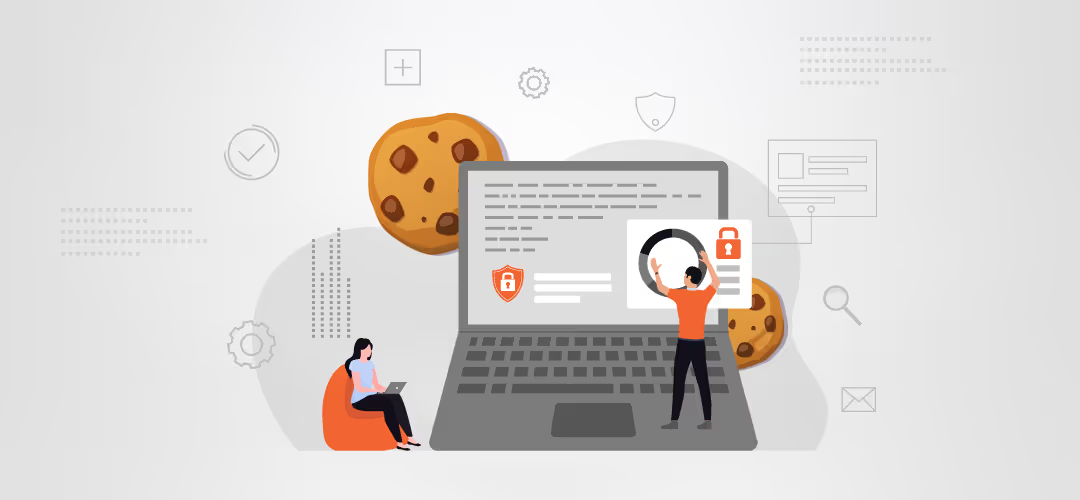
User identity alternatives to 3rd-party cookies & contextual targeting.
In late 2023, quite sometime after Firefox and Safari, Chrome will block third-party cookies. Third-party cookies, these are the small files that are installed on a user's computer by a third-party technology platform when a user visits a website, have long been a key identifier for a user on the web. They helped advertisers target their ads and show users personalized content and ads. Google has taken steps to increase user privacy and security.
Why are these 3rd party cookies blocked?
Privacy issues with how third-party cookies collect user data and transfer it to third parties have led to regulators and web browsers. As of 2018, GDPR regulations establish clear rules for obtaining user consent for targeted advertising in European countries.
Similarly, CCPA regulations in California are intended to protect user data within the state. The Safari and Firefox browsers have already blocked third-party cookies and Chrome will block cookies in 2023. As a result of this, the advertising industry has tested alternatives to third-party cookies.
There are some best practices or alternatives to avoid third-party cookies.
1. The Privacy Sandbox
When Google announced the ban on third-party cookies, it also offered alternatives, first introducing the Privacy Sandbox. This approach will be based on cohort analysis, it does the analysis of the browsing history of the websites among the people, not on individual user data, and produces a solution that observes privacy. Like Google, other companies like Criteo also have come forward and introduced their idea as including API suggestions like SPARROW.
2. Universal IDs
Universal ID is a common identifier which is used by different platforms on the top of other IDs. It can significantly expand the reach of advertising campaigns. Its technological goal is to identify that the particular user is similar to third-party cookies but using hash identifiers with the data privacy regulations. These identifiers are also multi-channel and cross-platform, which makes it more advanced and secure than cookies that can only identify users on the web.
In this approach there are two identifiers will work in conjunction:
- 1st-party website cookies
- Permanent user identifiers, such as email and phone number.
Scaling problem is the main limitation of this solution: it requires an agreement between many publishers. Consequently, universal ID providers can provide fragmented audiences and limited inventory in it. So while this may work well for some advertisers, coverage may be quite limited for others.
3. User Identity Graphs
This approach delivers Personally Identifiable Information (PII) like an email address with non-Personally Identifiable Information like 1st-party cookies and publisher IDs. By this the advertisers can activate audiences on the different channels and connect user’s activities in different environments.

The downside of this method is that it is difficult to develop and deploy without accidentally compromising a user's privacy. To make the user data safe, publishers and advertisers need to choose a trustworthy vendor which will provide the necessary technical infrastructure.
4. Contextual targeting
Contextual targeting allows you to show ads only on relevant web pages, with an emphasis on content and keywords, rather than looking for alternatives to third-party cookies. It does not rely on any personal information, but may use information provided by the publisher, such as device and browsing time. Advertisers use machine learning to predict which pages to target and when to target them.
5.Universal Identity Solution-Admixer ID
Admixer has developed its Universal ID solution to help online publishers and advertisers maintain targeted, analytics and attribution capabilities across the open web and apps.
Admixer ID is a unique code that allows users to access different and multiple platforms, browsers, and devices without cookies. It uses extracted email addresses and phone numbers that have been obtained with the express consent of the user and that are impossible to decipher. This way, users can be sure that their personal information will not be misused.

What is the best approach as an alternative to third-party cookies?
Contextual targeting and Google’s Privacy Sandbox can be third-party cookie alternatives. However, a clear winner has yet to be revealed. To avoid a steep drop in revenue, publishers better start experimenting with these solutions before third-party cookies are blocked by Chrome in late 2023.
Content Credit: Gaurav Divakar



